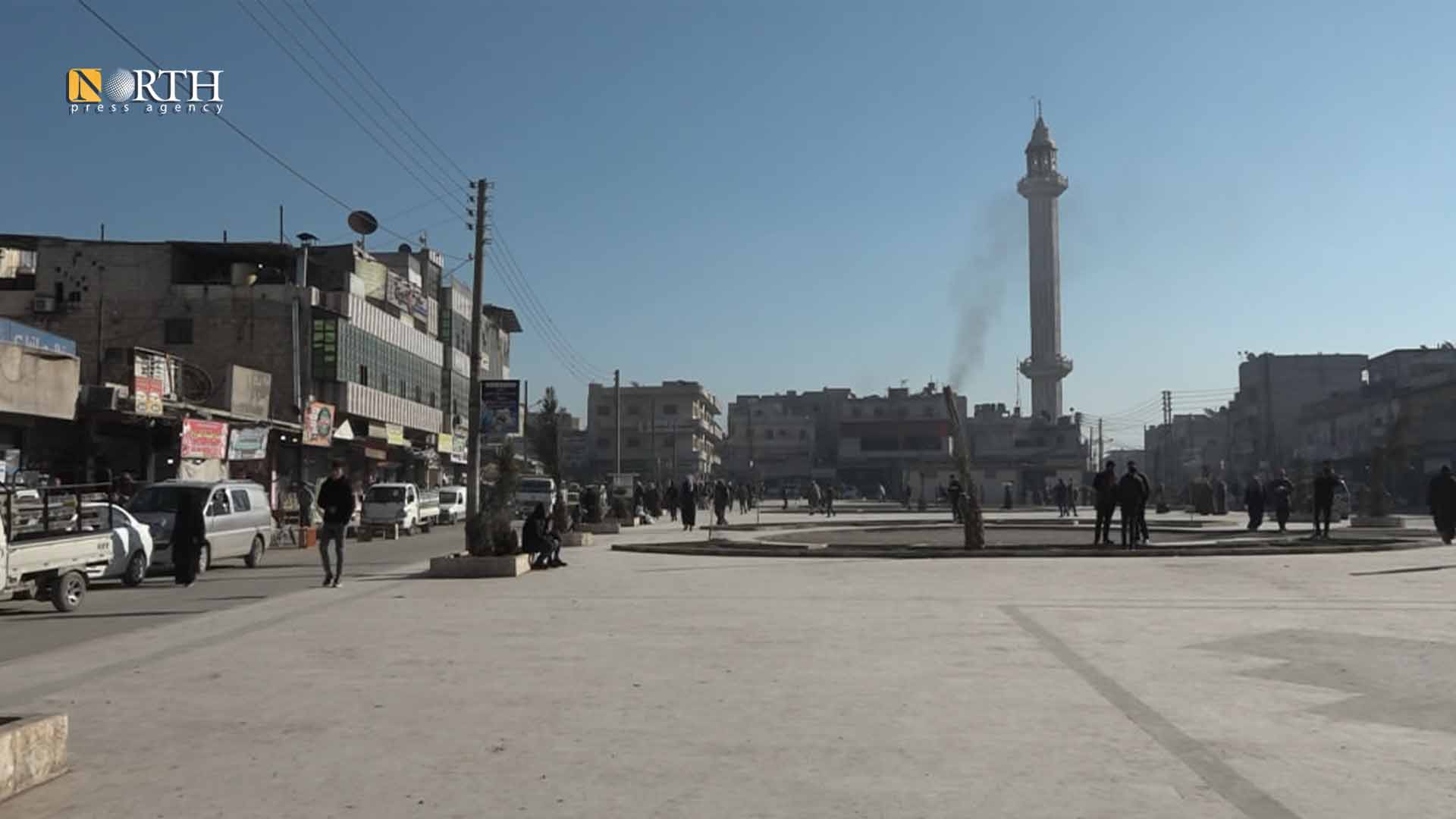MANBIJ, SHADDADI, Syria (North Press) – Umm Muhammad, a resident of Shaddadi, south of Hasakah, northeast Syria, tries, through concerning herself all the day, to forget about the painful incidents that she witnessed at the hands of the Islamic State Organization (ISIS) that affected the course of her life, but cannot forget those memories.
From early morning until evening, the 52-year-old Umm Muhammad, who introduced herself according to this name, works in cultivation and picking crops, which have become exhausting works, in order to secure basic needs for her grandchildren, who lost their breadwinner, after ISIS killed her son and husband.
After finishing her work, the fiftieth woman prepares food, does house work that she sees difficult to fulfill due to her age.
Whenever her four grandchildren fell asleep, she recalls the harsh times she witnessed when she was told the news of her husband and son killing at hands of ISIS, “I feel terrible and sorry for them I spend the whole night awaken and cry for my son and my husband and I wonder why my grandchildren have been deprived of their father.”
Years ago, ISIS militants, killed Umm Muhammad’s husband in Shaddadi town, who used to be the breadwinner for his family and his married son and his four children.
Umm Muhammad said, while trying to prevent herself from crying in order for her grandchildren not to see her, that she used to live a normal life and her husband used to secure all their needs.
After ISIS killed her husband, they witnessed harsh conditions and her son became the breadwinner for the family, according to Umm Muhammad.
ISIS atrocities
In February 2013, following fierce battles between the Syrian government forces and armed opposition factions and Hayat Tahrir al-Sham (HTS, formerly al-Nusra Front), the government lost control over Shaddadi town, 60 km south of Hasakah, where infrastructure was devastated and the government facilities were looted.
A year later, ISIS attacked Shaddadi and resulted in fierce fighting that lasted for days to end with ISIS overtake of the city.
In 2016, the Syrian Democratic Forces (SDF) managed to take control over Shaddadi.
Umm Muhammad witnessed hard times because she lost her husband without knowing the reason.
Year and a half later, Umm Muhammad was stunned when her son was also killed by ISIS leaving her alone to support the family after her daughter-in-law left the house and abandoned her children.
The grandmother does not know what to answer whenever her grandchildren ask her about their father and she cannot tell them about ISIS atrocities because they are so young.
The woman, who suffers from flue, noted that they have been witnessing poor conditions since the death of her son and husband and that they are left with nobody to support them.
Umm Muhammad is concerned about her grandchildren’s future and fate especially that the biggest, who is five years old, will go to school next year and she cannot secure school supplies for him because she can hardly secure expenses to feed them.
She feels pity when thinking about her grandchildren’s future if she dies and who will look after them.
Terrorist and takfiri groups
ISIS militants intended to make, and sometimes forced, residents to see incidents of beheading and amputating limbs of those it described as “apostate and faithless” with the aim of spreading fear and terror, according to testimonies by residents of cities witnessed ISIS atrocities.
ISIS used to impose tough laws that restrict personal freedom, a special clothing for women, banned smoking and hookah, banned cell phones, in addition to preventing all intellectual and cultural activities.
As for the 41-year-old Ibrahim Mustafa a resident of Manbij, north Syria, he tries to forget the scene of his friend while hanged after being executed by ISIS in a square in Manbij city, but he cannot, as it was “a brutal incident”.
“While we were walking in the street, a patrol called Hisbah hit and subjected us to an accurate inspection because we were smoking,” Mustafa said.
“I did not bear a packet of cigarettes but he did.”
“They arrested him under the pretext of smoking. Three days later, I discovered that they beheaded him and hanged him in the square.”
“They wrote a sign, which they used to hang when they execute people, saying he was an apostate and faithless,” he noted.
In January 2014, ISIS took control over Manbij city and its villages following fierce battles against the armed opposition factions.
In August 2016, Manbij Military Council with support of the SDF and areal support of the US-led Global Coalition expelled ISIS after battles lasted for about two months and a half.
“They are terrorist and takfiri groups,” Mustafa described ISIS.
Disfiguring bodies and crimes committed by ISIS spread fear among people whenever the name of ISIS is said.
“More dangerous group”
Concern heightens of ISIS revival through its sleeper cells in the region and residents fear Hawl Camp may turn into incubator for more dangerous group since wives of ISIS militants teach children radicalism and extremism.
The Hawl Camp, 40 kilometers east of Hasakah, is a house for about 15,250 families numbering 56,150 individuals including 2,423 families of dead and detainees of foreign ISIS militants of about 60 countries.
In November 2021, media center of Manbij Military Council announced that they managed to arrest three individuals charged of belonging to ISIS.
On January 7, the Internal Security Forces of North and East Syria (Asayish) with the support of the US-led Global Coalition arrested one of ISIS military leaders in the countryside of Shaddadi.

